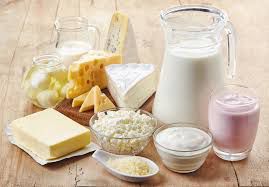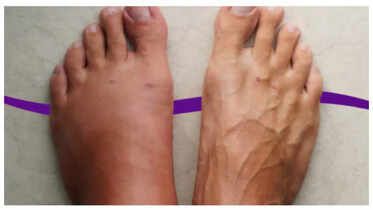ARTICLES
Top Fertility Supplements for Women Trying to Conceive
Top Fertility Supplements for Women Trying to Conceive

Trying to get pregnant can be exciting, but it can also feel like a long wait when things don’t happen as quickly as expected. While a healthy diet and lifestyle play a role, some women find that certain supplements give their bodies the extra support needed for conception. The right nutrients can help regulate cycles, improve egg quality, and create the best conditions for pregnancy.
With so many products on the market, it’s easy to feel overwhelmed. Instead of guessing what might work, here’s a list of some of the most recommended fertility supplements that could help increase your chances of conceiving.
1. Folic Acid
Folic acid is often associated with pregnancy, but it’s just as important when trying to conceive. This B vitamin supports healthy cell division and helps prevent neural tube defects in early pregnancy. It also plays a role in improving egg quality. Many doctors recommend taking at least 400 mcg daily before conception to build up levels in the body.
2. Myo-Inositol
Myo-inositol is a natural compound that supports ovarian function and hormone balance. It is especially helpful for women with polycystic ovary syndrome (PCOS), as it improves insulin sensitivity and helps regulate menstrual cycles. Studies show that myo-inositol may also improve egg quality, making it a great addition to a fertility supplement routine.
ALSO READ: Egg Donation for IVF in Nigeria: What You Need to Know
3. Coenzyme Q10 (CoQ10)
Egg quality declines with age, and CoQ10 is known to support mitochondrial function in cells, including eggs. Women in their 30s and 40s often take this supplement to boost energy production in eggs, improving their chances of fertilization. Some fertility specialists recommend 200-600 mg per day, but it’s best to check with a doctor for the right dose.
4. Vitamin D
Low vitamin D levels have been linked to fertility issues. This vitamin plays a role in hormone production and helps create a healthy environment for implantation. Since many women are deficient, taking a daily vitamin D supplement (at least 2,000 IU) may help regulate reproductive hormones and improve overall fertility.
5. Omega-3 Fatty Acids
Omega-3 fatty acids, especially DHA and EPA, help reduce inflammation, support hormone balance, and improve blood flow to reproductive organs. These healthy fats are found in fish oil supplements and are known to support egg quality. They also help in the early stages of pregnancy by reducing the risk of miscarriage.
6. Zinc
Zinc is a mineral that plays a role in cell division, ovulation, and hormone production. It helps regulate estrogen and progesterone levels, which are necessary for a healthy menstrual cycle. Many fertility specialists suggest adding zinc to a supplement routine, as deficiencies can interfere with conception.
7. Iron
Iron is essential for oxygen transport in the body, and low iron levels can affect ovulation. Women with iron deficiency may have irregular cycles or anovulation (lack of ovulation). Taking iron supplements or eating iron-rich foods like spinach, red meat, and lentils can help prepare the body for pregnancy.
8. Maca Root
Maca root is a natural herb known for its hormone-balancing properties. It supports the endocrine system, which regulates reproductive hormones. Many women use maca to improve energy, regulate cycles, and increase libido. It is available in powder or capsule form and can be added to smoothies or taken as a daily supplement.
ALSO READ: How Fertility Testing is Done for Both Men and Women in Nigeria: Costs and Procedure
9. Choline
Choline is often overlooked, but it plays a role in fetal brain development and egg quality. It works alongside folic acid to support cell growth and reduce the risk of birth defects. Since many prenatal vitamins don’t include enough choline, taking an additional supplement can be beneficial.
10. N-Acetyl Cysteine (NAC)
NAC is an antioxidant that supports egg quality, reduces oxidative stress, and helps with hormone balance. It is particularly useful for women with PCOS, as it improves insulin sensitivity and supports ovulation. Some studies suggest that NAC may also help with implantation and early pregnancy.
11. Probiotics
Gut health plays a role in overall fertility, and probiotics help maintain a healthy balance of bacteria in the digestive and reproductive systems. A well-functioning gut improves nutrient absorption and reduces inflammation, both of which are beneficial for conception. Look for a high-quality probiotic with multiple strains for the best results.
12. Ashwagandha
Ashwagandha is an adaptogenic herb that helps the body manage stress. High stress levels can interfere with ovulation and hormone production, making it harder to conceive. Many women take ashwagandha to support adrenal function and improve overall fertility.
13. L-Arginine
L-arginine is an amino acid that improves blood flow to reproductive organs. It helps thicken the uterine lining, creating a better environment for implantation. Some studies suggest that it may also support egg and embryo quality.
14. Vitamin B12
Vitamin B12 plays a role in red blood cell production and DNA synthesis. Low levels can lead to fertility issues, especially in women with vegan or vegetarian diets. Taking B12 supplements can help regulate ovulation and support healthy egg development.
15. Evening Primrose Oil
Evening primrose oil is commonly used to improve cervical mucus, making it easier for sperm to reach the egg. It contains gamma-linolenic acid (GLA), which supports hormone balance. However, it should only be taken in the first half of the menstrual cycle, as it can cause uterine contractions if taken after ovulation.
ALSO READ: Where to Find a Sperm Donor in Nigeria
Discover more from 9jaPolyTv
Subscribe to get the latest posts sent to your email.

 EDUCATION14 hours ago
EDUCATION14 hours agoFEC imposes 7-year ban on establishment of new federal tertiary institutions

 POLYTECHNIC NEWS14 hours ago
POLYTECHNIC NEWS14 hours agoOyo sets up c’ttee to audit staff of Adeseun Ogundoyin polytechnic

 EDUCATION13 hours ago
EDUCATION13 hours agoNYSC Members Urged to Champion Fight Against Insecurity in Nigeria

 EDUCATION14 hours ago
EDUCATION14 hours agoNELFUND Outlines Student Loan Repayment Plan After Graduation

 EDUCATION22 hours ago
EDUCATION22 hours agoMasters & PGD Options for HND Microbiology Graduates in Nigeria and Abroad

 POLYTECHNIC NEWS14 hours ago
POLYTECHNIC NEWS14 hours agoKebbi poly decries low student enrollment

 ARTICLES13 hours ago
ARTICLES13 hours agoWe Asked Nutrition Experts to Pick the Healthiest Cooking Oil, and They All Chose the Same One

 RELATIONSHIP23 hours ago
RELATIONSHIP23 hours agoRights and Responsibilities of Husband and Wife in Islam


































